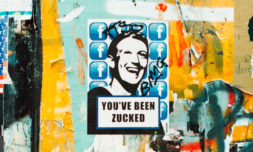Back again with yet another story concerning data privacy and Facebook. But, there’s a twist this time around – Facebook is on the offensive.
General public opinion of Facebook has all but fallen off a cliff in recent years.
Following the blunder of Cambridge Analytica, we’ve heard endless stories of political manipulation on the app, nefarious sales through Facebook Marketplace, and a lax approach to user privacy and misinformation which still persists today.
During a study back in May, these factors culminated in Facebook gaining the unwanted title of being the least trustworthy and secure of all the big social media players. Congratulations!
The latest slew of accusations against the platform come by way of the US government, which claims Facebook is using ‘privacy as a pretext’ to block researchers from accessing its data and checking for misinformation.
All in the name of privacy, apparently. You couldn’t write it.
This evening, Facebook suspended my Facebook account and the accounts of several people associated with Cybersecurity for Democracy, our team at NYU. This has the effect of cutting off our access to Facebook's Ad Library data, as well as Crowdtangle. 1/4
— Laura Edelson (@LauraEdelson2) August 4, 2021
Facebook’s crackdown on third-party academics
If you keep up with social tech, you’ll recall Facebook coming under fire for its confusing and inconsistent approach to political advertising – certainly in the build up to the US presidential election.
Despite assertions from CEO Mark Zuckerberg to congress that Facebook does not ‘allow misinformation in ads,’ baseless claims from Donald Trump sought to convince voters their ballots hadn’t been counted. It later reluctantly pulled 50 such ads.
For this reason, third party auditors have kept a close eye on Facebook’s product adverts.
Using a browser plug-in called Ad Observer which – as its name suggests – allows for searches across the social network’s ads, researchers at the New York University uncovered ‘systematic flaws’ in Facebook’s ad library and its misinformation policies over several years.
Facebook does not make such information available itself, and as previous instances have shown, the company often fails to label political ads at all.
Now, in a move being described as ‘deeply concerning’ by Senator Mark R Warner, Facebook has banned third party researchers from using Ad Observer completely – on the basis it may jeopardise user’s privacy.
On the surface, it’s not an entirely unreasonable argument given that Cambridge Analytica sprung from third party inspections of the site for user data. However, software giant Mozilla is adamant that no such threat actually exists, having examined the code of the Ad Observer plug in.





















